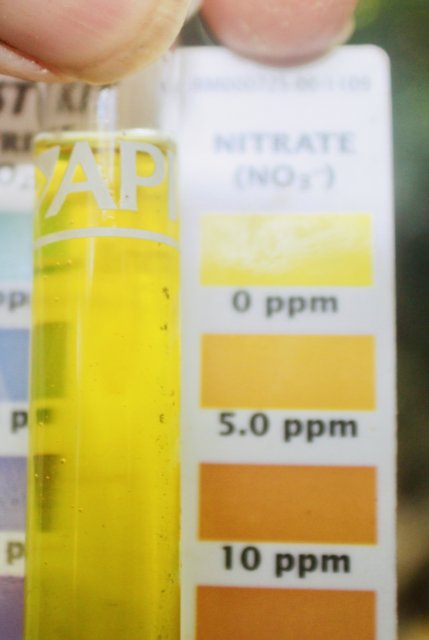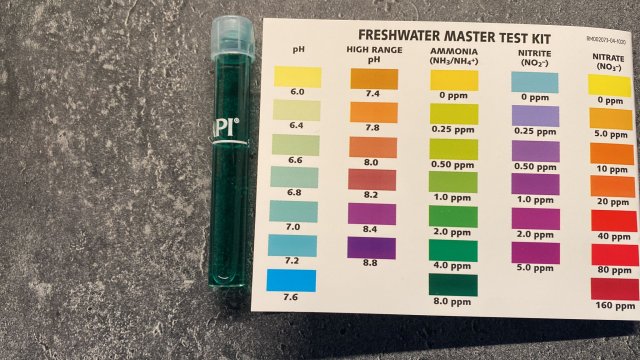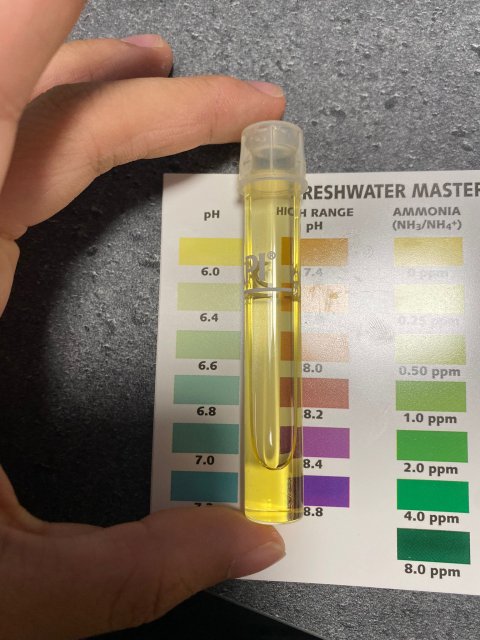To me a good nitrate level would be the same as what is found in nature, where my fish are found.What is a good nitrate level?
Since I am a bit anal about this, I test for nitrate where ever I travel.
I tested the Cenotes in Mexico, average 0.00ppm.
Cenote Escondido below

I tested when in the forest outside Santa Marta Colombia in a tributary of the Rio Magdalena, 0.00ppm but
in that same river next to a banana plantation that was heavily fertilized there seemed to be a dead zone where nitrates were in the 10 -20 ppm range.
The locals I talked to near the plantations said, to find the chogorros (cichlids) I was looking for, I would need to go upstream away from that area.
a shot from upstream below

Here in Panama in places where my current fish were caught 0-5 ppm was common.
Below the test results of a small stream just out of town, in a forest near where I live.

Before I retired as a chemist, it was my job to test the incoming raw water from Lake Michigan at least once per shift, most of the year nitrate averaged < 1ppm, although after a long winter, during lake turnover it would sometimes climb to almost 5 ppm (temporarily).
I try to maintain an average of <5ppm in my cichlid tanks, with every other day 30-40% water changes, and by using heavy plantings in refugiums.
If however, I were to test Asian rice paddies where many Anabantoids are found, or African savannah water holes bichirs, or certain catfish are found my results may be quite different.
But because I keep rheophillic cichlids that require pristine water a number closest to 0.00ppm is my goal.
Elevated Nitrate in itself is not "acutely" dangerous for most fish we keep, but .....
seems to have long term chronic effects, for certain especially long lived large cichlids like oscars, Uaru, and Geophagines.
You've only to check history in the disease section, and peruse the HITH posts, that say
"My oscar was fine for 2 years, but now is getting scarred up".
Nitrate 20, 30, or 40 ppm.
And where the spot for water change schedule is found....25% or 30% every 2 weeks, or even less




